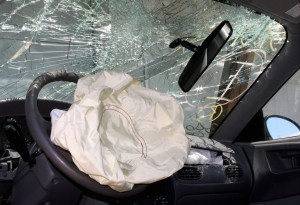The next round of vehicles needing to have faulty Takata airbags repaired have been released by the National Highway Traffic Safety Administration, which is now overseeing the repair process.
The current set includes models from 14 different automakers that are being recalled. The automakers in this round include: Ford, Nissan, Mercedes-Benz, Ferrari, Daimler Vans, Toyota, Tesla, BMW, Fiat Chrysler, Mazda, Subaru, Jaguar-Land Rover, McLaren and Volkswagen.
Toyota, Ford and Honda released some of their models last week.
Last month, Takata recalled an additional 3.3 million faulty airbag inflators as it expanded the largest automotive recall in U.S. history. The vehicles just released are that group of faulty ammonium nitrate-based inflators.
(Ford orders 2,900 Rangers with Takata airbags parked immediately. Click Here for the story.)
The problem with using ammonium nitrate to create a small explosion to fill airbags quickly in a crash is that the chemical can deteriorate when exposed to high humidity and temperatures and burn too fast, blowing apart a metal canister.
When that happens, pieces of metal and plastic shrapnel can be spewed into the vehicle’s cabin, harming the vehicle’s occupants. At least 21 people have been killed worldwide and more than 180 injured.
(Takata airbag recall expanding again. Click Here for the story.)
To see if your vehicle is involved, go to https://www.nhtsa.gov/recalls and key in your 17-digit vehicle identification number. It can be found on your registration and is stamped on the driver’s side dashboard. Automakers and the government recommend getting recall repairs completed as soon as possible.
Takata’s recall is the largest in U.S. history, involving 19 automakers, recalling 69 million airbag inflators in 42 million vehicles.
(Less than half of potentially deadly Takata airbags replaced. For the story, Click Here.)
The problem results in more than $1 billion in fines and penalties against Takata, which drove it into bankruptcy. Its assets were bought by Key Safety Systems Inc.


Since more people other than the owner of the vehicle are at risk, you could justify requiring an OTA download that disables the vehicle from starting until the recall is completed.
This will go down as one the worst handled recalls in American history. Owners are now receiving letters from OEM stating they recommend not driving the vehicles, or in some cases not having a passenger in the front seat. Case action for loss of use is coming.